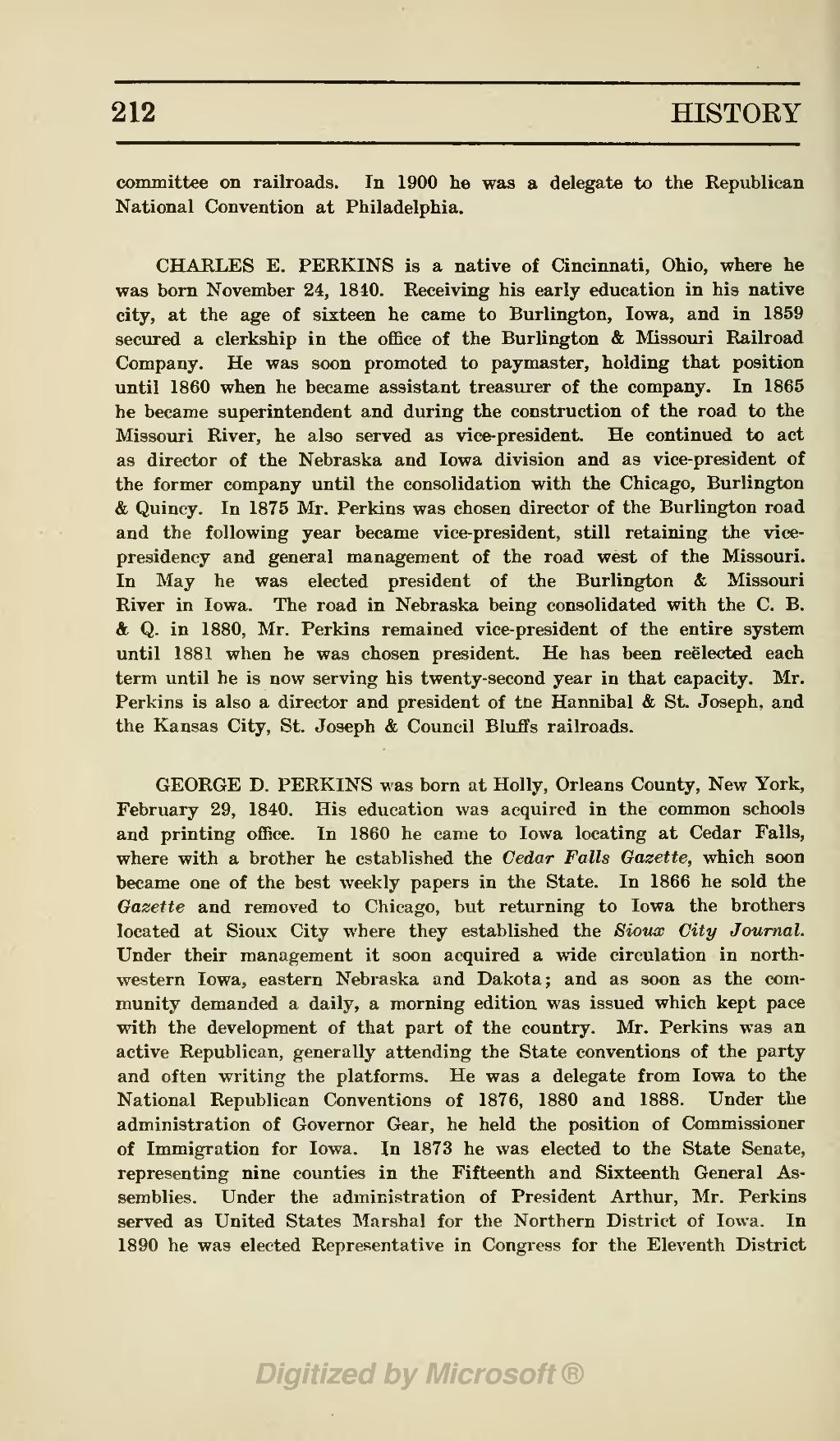committee on railroads. In 1900 he was a delegate to the Republican National Convention at Philadelphia.
CHARLES E. PERKINS is a native of Cincinnati, Ohio, where he was born November 24, 1840. Receiving his early education in his native city, at the age of sixteen he came to Burlington, Iowa, and in 1859 secured a clerkship in the office of the Burlington & Missouri Railroad Company. He was soon promoted to paymaster, holding that position until 1860 when he became assistant treasurer of the company. In 1865 he became superintendent and during the construction of the road to the Missouri River, he also served as vice-president. He continued to act as director of the Nebraska and Iowa division and as vice-president of the former company until the consolidation with the Chicago, Burlington & Quincy. In 1875 Mr. Perkins was chosen director of the Burlington road and the following year became vice-president, still retaining the vice-presidency and general management of the road west of the Missouri. In May he was elected president of the Burlington & Missouri River in Iowa. The road in Nebraska being consolidated with the C. B. & Q. in 1880, Mr. Perkins remained vice-president of the entire system until 1881 when he was chosen president. He has been reëlected each term until he is now serving his twenty-second year in that capacity. Mr. Perkins is also a director and president of the Hannibal & St. Joseph, and the Kansas City, St. Joseph & Council Bluffs railroads.
GEORGE D. PERKINS was born at Holly, Orleans County, New York, February 29, 1840. His education was acquired in the common schools and printing office. In 1860 he came to Iowa locating at Cedar Falls, where with a brother he established the Cedar Falls Gazette, which soon became one of the best weekly papers in the State. In 1866 he sold the Gazette and removed to Chicago, but returning to Iowa the brothers located at Sioux City where they established the Sioux City Journal. Under their management it soon acquired a wide circulation in northwestern Iowa, eastern Nebraska and Dakota; and as soon as the community demanded a daily, a morning edition was issued which kept pace with the development of that part of the country. Mr. Perkins was an active Republican, generally attending the State conventions of the party and often writing the platforms. He was a delegate from Iowa to the National Republican Conventions of 1876, 1880 and 1888. Under the administration of Governor Gear, he held the position of Commissioner of Immigration for Iowa. In 1873 he was elected to the State Senate, representing nine counties in the Fifteenth and Sixteenth General Assemblies. Under the administration of President Arthur, Mr. Perkins served as United States Marshal for the Northern District of Iowa. In 1890 he was elected Representative in Congress for the Eleventh District
